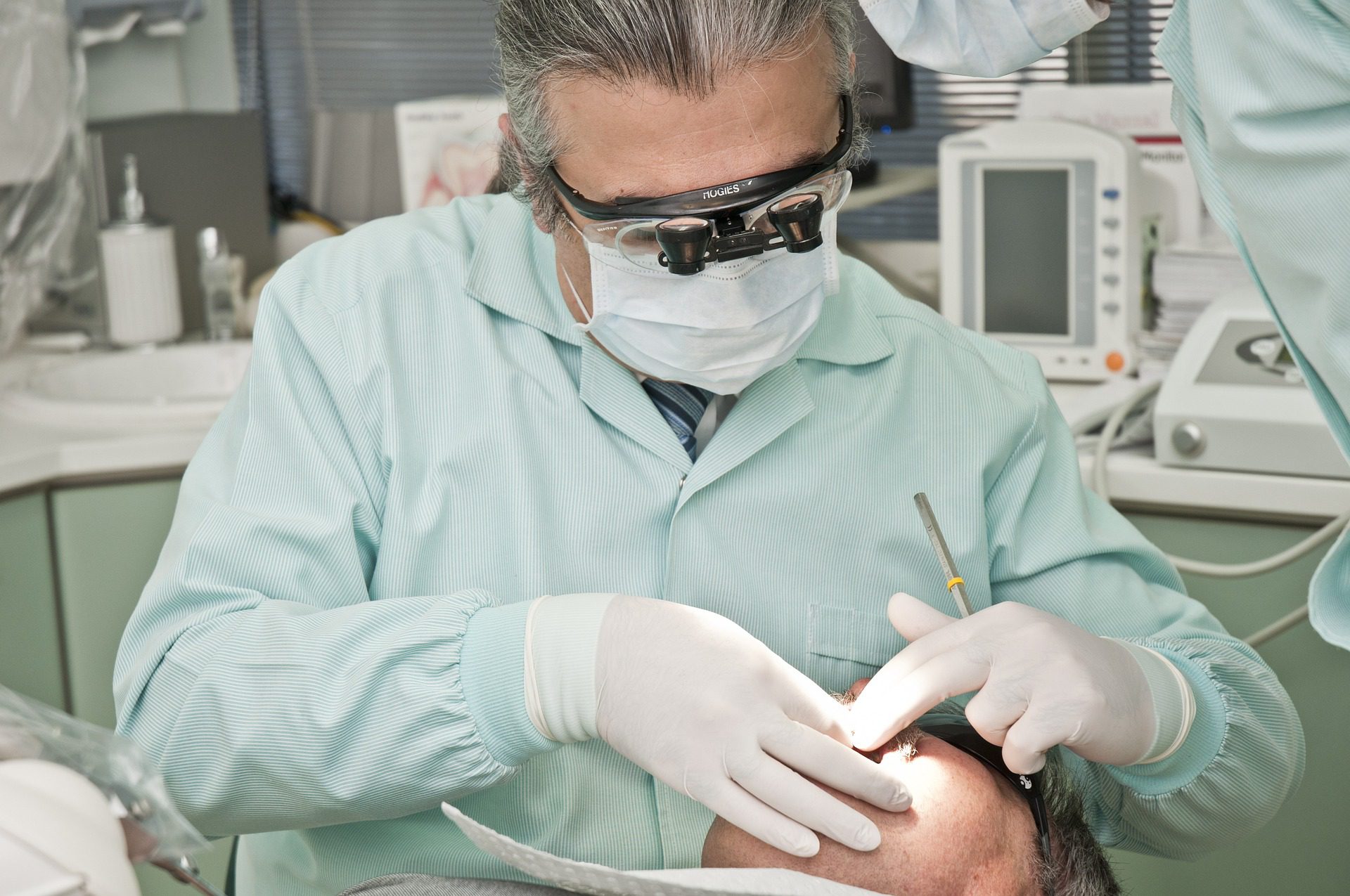Has your dentist recommended that you get dentures? You’re in good company. Tens of millions of people in the United States don’t have teeth and can benefit from dentures.
Your initial reaction to dentures, though, may be, “There’s no way I could get used to them!” However, modern dentures are nothing like what many individuals think of when they hear “dentures.” The truth about dentures is that they are a common and reliable solution to many dental issues, as they can instantly improve your quality of life.
Let’s examine some common myths about dentures, the truth about dentures, and how you can easily start getting used to dentures.
Myths About Dentures Involving Chewing Ability
A common myth about dentures is that they will give you just 10% to 15% of a non–denture wearer’s chewing ability. The truth about dentures is that your chewing ability will be closer to 80% to 90% with permanent dentures — similar to what you would experience with natural teeth. This is especially true if you choose implant-retained dentures, which are supported by screw-like, metal posts. A temporary denture, also known as an immediate denture, may give you a chewing ability in the range of 70% to 75%, which is still much higher than the 10% to 15% that many people expect.
Myths About Dentures Involving Denture User’s Age
Another myth about dentures is that young people shouldn’t have to get dentures. The truth about dentures is that they are appropriate for people of all ages. Many individuals lose their teeth while still young for various reasons. For instance, diabetes, bulimia, and anorexia can cause teeth to rot even after these diseases have been treated.
Even if you begin your denture journey at a young age, your dentures will not age your appearance. Your dentures can look like beautiful, natural teeth whether you’re 25, 85, or somewhere in between.
Myths About Dentures Involving Chewing Technique
Yet another common denture myth is that you’ll have to always chew with both your left and your right side to avoid tipping or flipping your dentures. This occurs when food becomes lodged between your gums and dentures due to the dentures shifting while you’re eating.
The truth about dentures is that when your dentures fit properly, you shouldn’t have to worry about chewing on both sides simultaneously. However, you should practice switching your chewing sides throughout your meal to keep your gums from developing sore spots.
Also, start chewing soft foods first, then progress to more solid food. The best soft foods for new denture wearers include mashed potatoes, eggs, and baked beans. Then, you can try rice, bread, and pasta. Stay away from chewy, sticky, or hard foods.

Myths About Dentures Involving Regretting Them
Some people may warn you that you’ll eventually regret choosing dentures, but this is yet another myth. The truth about dentures is that they can be the perfect solution for your dental needs if you’re struggling with dental problems due to receiving inadequate dental care when you were younger, for example. In addition, dentures may be necessary if your natural teeth have become damaged and weakened due to a sport-related injury or collision.
With full dentures, you won’t ever have to deal with cavities, root canals, and flossing individual teeth again. You should still visit the dentist for denture checkups twice a year to make sure your dentures remain intact and your gums remain healthy.
Get Used to Dentures: Tip 1
Now that we’ve discussed the truth about dentures, we can explore tips for getting used to dentures — a process that may take 4-8 weeks. One way you can adapt to using dentures is to practice reading out loud when you first get your dentures. You might have a lisp at first, but this should go away with more practice speaking with your dentures.
Get Used to Dentures: Tip 2
Practice what’s called denture slipping, or readjusting your dentures discreetly when you’re in public. Your dentures might slip from time to time due to laughing, sneezing, coughing, or even smiling. By biting down on the dentures and swallowing, you should have no problem resetting your dentures in the proper position.
Get Used to Dentures: Tip 3
You can also get used to dentures by practicing eating while wearing them. Your gums might feel sore initially. Biting into some foods might even cause pain. However, the more you practice chewing with dentures, the easier and more enjoyable eating will become.

Get Used to Dentures: Tip 4
Finally, you can keep your dentures feeling normal by mastering how to care for and clean them. This will keep your false teeth from causing spore spots and discomfort in the mouth.
For instance, don’t let your dentures dry out, as they need to stay moist like your natural teeth. Soaking your dentures overnight in water or a soaking solution for dentures will keep them in great shape. In addition, brush your dentures, tongue, and gums using a soft toothbrush. This will clear food particles, plaque, and bacteria from the mouth. This is essential for preventing decay in any remaining teeth, preventing gum disease, and keeping sore spots at bay.
Learn More About the Truth About Dentures at Alondra Dental Care
At Alondra Dental Care, we’re excited to share more with you about the truth about dentures and help you experience the benefits of dentures firsthand. We also provide a full range of other treatments and services for the entire family, including dental bridges, dental implants, and porcelain veneers. Our main goal is to help you to maximize your long-term oral health.
We have earned a reputation for creating a personalized and comfortable experience. We genuinely listen to our patients and even encourage you to bring headphones and music to your appointment to make your visit to our office more relaxing.
Get in touch with us to learn more about our services, and schedule an appointment now!




